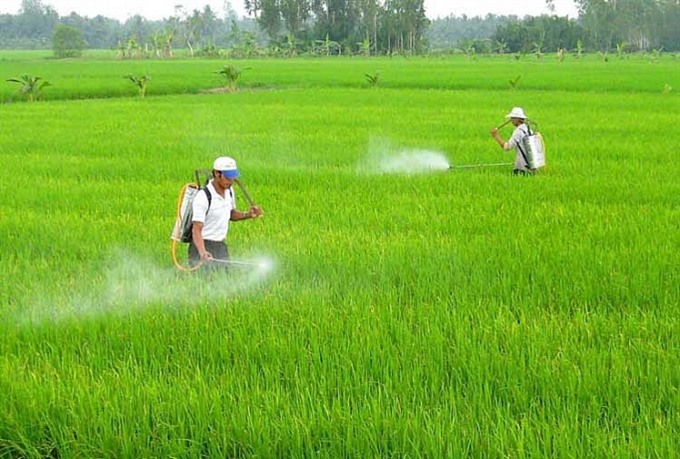 Society
Society

Better managing the production, trading and use of herbicides is an urgent task for Việt Nam and the world, said Hồ Xuân Hùng, head of the Vietnam General Council of Agriculture and Rural Development.
 |
| Experts agreed that the management of herbicides should be tightened as the abuse of the substance might destroy the environment, affect public health and threaten the agricultural sector. — Photo congthuong.vn |
HÀ NỘI — The herbicide industry needs to be more tightly regulated, according to a farming official.
Better managing the production, trading and use of herbicides is an urgent task for Việt Nam and the world, said Hồ Xuân Hùng, head of the General Council of Agriculture and Rural Development Vietnam.
Addressing a workshop entitled ‘Reality and challenges in the management and use of herbicide in Việt Nam’ held on Tuesday in Hà Nội, Hùng said herbicides play an important role in agriculture. However, he said, the abuse of this substance has brought implications for production, environment and public health as well as threatening the sustainable development of the agricultural sector.
According to Hùng, Việt Nam uses a lot of plant protection chemicals and it is difficult to control usage.
Herbicides are used on all plants, among which rice is the most common.
Statistics from the Ministry of Agriculture and Rural Development (MARD) showed Việt Nam spent US$500-700 million annually to import raw materials and pesticides from China. Of these, 48 per cent were herbicides (or 19,000 tonnes), pesticides and insecticides accounted for 32 per cent (16,400 tonnes) and the rest was chemicals for growth regulators.
Doctor Nguyễn Xuân Hồng, former head of MARD’s Department of Plant Protection, said weeds were the biggest issue in plant protection as they reduced between 40 and 50 per cent of a plant’s productivity.
Chemical herbicides were widely used due to their low cost and high efficiency, but they may harm human health. Herbicides also pollute the environment and endanger the ecosystem.
The volume of herbicides imported to Việt Nam increased rapidly over the past few years from 6,500-9,000 tonnes per year in 1981-1986 to 100,000 tonnes in 2015 and 120,000 tonnes last year.
Hồng said difficulties in managing herbicides included the user’s lack of knowledge about the chemicals.
The growing number of shops and dealers trading the chemicals and loose management from local authorities and relevant agencies were also challenges.
Hồng suggested dissemination should be enhanced to raise awareness for farmers and the community.
It was necessary to finish legal documents on management of plant protection products and strict punishment should be imposed on violators, he said.
Hồng also called for policies facilitating the research and application of environmentally-friendly solutions to reduce the use of chemicals.
Nguyễn Văn Hưng, an expert from agricultural department under the Government Office, agreed.
A strategy for the use of plant protection chemical products in Việt Nam over the next 10-15 years should aim to cut the use of these products and enhance their effectiveness, he said.
Nguyễn Văn Tuất, former director of Việt Nam Agricultural Science Institute, said farmers should be advised to use herbicides only if necessary and select products with clear origins.
Participants at the workshop agreed that along with tightening the management of herbicide products, training for farmers on how to use the chemicals responsibly and effectively was a must. — VNS




